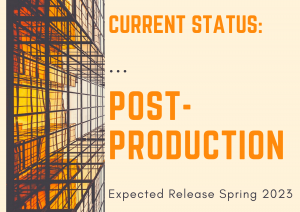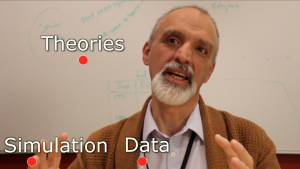 The MRP team expands their work by meeting in Kristiansand, Norway at the University of Agder. Here they work on the Modeling Religion in Norway (MODRN) project, which seeks to better understand secularization and migration through modeling. With MODRN the scholars aim to connect modeling and simulation with public policy.
The MRP team expands their work by meeting in Kristiansand, Norway at the University of Agder. Here they work on the Modeling Religion in Norway (MODRN) project, which seeks to better understand secularization and migration through modeling. With MODRN the scholars aim to connect modeling and simulation with public policy.
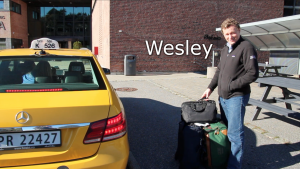 The team applies computer technology to the scientific study of religion, religious conflict, and secularization. These models include the Norwegian Religiosity Model (NORM) and a Proof of Concept model, which will specifically test the effects of policies. The team uses the abundant data on social trends available in Norway to help guide their building of models.
The team applies computer technology to the scientific study of religion, religious conflict, and secularization. These models include the Norwegian Religiosity Model (NORM) and a Proof of Concept model, which will specifically test the effects of policies. The team uses the abundant data on social trends available in Norway to help guide their building of models.
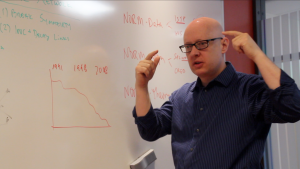 The scholars also model non-religion, such as why many people who practice religion don’t actually believe in it. The MODRN project hopes to combine many social dynamics and provide a framework for policymakers to understand how these dynamics influence each other and generate more effective policies related to society and religion. The team also work on Policy CLASP (Complex Learning Agent Simulation Platform), a platform that allows policymakers to run simulations without programming in order to explore many policy implications.
The scholars also model non-religion, such as why many people who practice religion don’t actually believe in it. The MODRN project hopes to combine many social dynamics and provide a framework for policymakers to understand how these dynamics influence each other and generate more effective policies related to society and religion. The team also work on Policy CLASP (Complex Learning Agent Simulation Platform), a platform that allows policymakers to run simulations without programming in order to explore many policy implications.
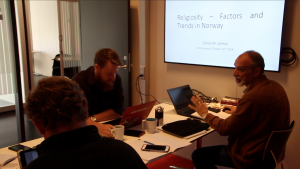 The models the scholars are creating will also offer insight into religious violence and radicalization under certain social conditions. The team members reflect upon the overarching challenges of the project, while affirming that they are passionate about reaching policymakers and excited to continue creating models that make a difference. To wrap up their time in Norway, the MRP team publicly presents their project and goals to colleagues at the University of Agder and public policymakers from Oslo.
The models the scholars are creating will also offer insight into religious violence and radicalization under certain social conditions. The team members reflect upon the overarching challenges of the project, while affirming that they are passionate about reaching policymakers and excited to continue creating models that make a difference. To wrap up their time in Norway, the MRP team publicly presents their project and goals to colleagues at the University of Agder and public policymakers from Oslo.

